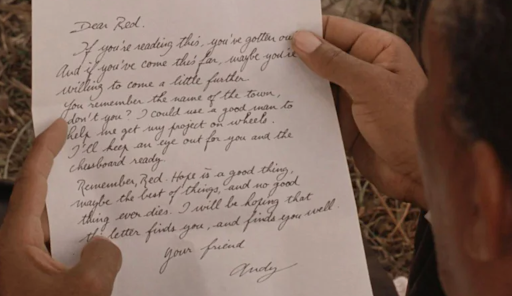Check out the full NC Local newsletter from November 30 for more from the Workshop, including industry news, job postings and shout-outs to journalists statewide. Sign up to get NC Local in your inbox every Wednesday.
By Eric Frederick, NC Local Newsletter Editor
Tommy Tomlinson and Daniel Kreiss made me redo this week’s newsletter at the last minute — Tomlinson, by writing something characteristically smart, and Kreiss, by …
You know what? I still don’t even know what Kreiss did. (And neither does he.)*
Indulge me; blame them.
In the spring of 2020, when I finally slipped behind the Raquel poster and slid out of the Facebook sewer pipe, after 14 long years on the inside, I scribbled a note to my friends, telling them where they could always find me: over on Twitter.
Some were puzzled. “What’s the difference?” one asked.
I told him to imagine he’s been invited to two dinner parties on the same evening. At one, the guest list has been chosen at random from every human he’s ever known. His best friend might be there, but so might that shallow, bigoted plagiarist who sat next to him decades ago in sophomore English, whose acquaintance is owed only to proximity and a “friend request” that followed a woozy chat at a boring class reunion. And although the table assignments are also random, the favor of your company will seem to be granted to people who are loudly obsessed with astrology, numerology and/or the collected wit and wisdom of Jeff Foxworthy.
At the other, the invitation actually asks you to create the guest list yourself. You can sit with close friends, people you know a little, or even people you’ve never met, but they’ll all be stimulating company. You can stay all night. Or you can leave quietly, without anyone taking offense that you “unfriended” them. You can reserve small rooms off the main dining hall for focused conversation and a digestif. It’s a little like that old parlor game question that always rearranges the social calendars of Lincoln, MLK and Jesus: If you could dine with any five people who’ve ever lived …
The former party, of course, is Facebook. The latter is Twitter — at its best, anyway. So … where will you dine?
Which brings me to Tomlinson— a skillful writer you may know from his years at The Charlotte Observer, or from his On My Mind commentary on WFAE, or from his SouthBound podcast, or through a book or two he has written. He made me think again about the hard choice we now face, in a perceptive post Tuesday on his Substack newsletter, The Writing Shed.
Like Tomlinson, and many of you, I have a complicated relationship with Twitter, which can be as hellish as Facebook if you make the wrong turn. But I especially connected with his point about the “many true joys in my life that I might never know about if not for Twitter.”
‘Every day somebody tweets out a new story I need to read, a new song I need to listen to, a new point of view I’ve never thought of before.’
As I read his piece, it occurred to me how much of what’s in my brain is there because of Twitter. It has made me smarter, better, more aware. When I think about my worldview of 15, 10, even five years ago, I’m embarrassed at how naive, how limited it was. Hanging out virtually with Cierra Hinton just makes me a better person. Folks like Ryan Pitkin improve my library (thanks, BTW, for the terrific Off the Edge by Kelly Weill). Nobody tips me to intriguing viewpoints like Nation Hahn. And nobody makes me WTF better than Jeremy Markovich.
You don’t get smarter because of Twitter itself — but because of where Twitter sends you. Some call it a rabbit hole (sorry, Jeremy), but for me, it’s like the dispenser of clues in an intellectual scavenger hunt. And the whole experience also makes me better at my work. In fact, I think it’s the reward for inquisitiveness that has always made Twitter so attractive to information professionals.
Yes, I know I’m a pawn of profiteers, but Twitter has always made me feel just a little less dirty about that. Facebook insults my intelligence. YouTube tries to throw me in the back of a car and take me for a “ride.” Instagram makes me feel like a voyeur of the banal. I actually see some merit in TikTok, and some utility in its news game, but I’m not there and probably never will be. (Guess where I see content from TikTok?)
I don’t exactly know how I’ll pursue my craft when I finally punt Twitter, but unless things change soon, I’ll reluctantly find out. I’m on Mastodon, but I don’t see a real future there — too decentralized, a little inscrutable. I like the potential of Post, but I’m still on the waiting list.
For now, I remain on the Twitter beach, wondering whether I should keep working on the boat. And Red … Red? He was here just a minute ago…
I really want to hear your thoughts on Twitter, your plans, the implications for news and information (and democracy) — anything you want to share. Please reach out here. Meanwhile, check out Laura Hazard Owen’s running list of “things journalism loses if Elon Musk destroys Twitter.”
* Daniel Kreiss, as you know, is a professor at the UNC Hussman School who has done enormous and valuable research on the intersections of technological change, politics, communications and public life. He was “temporarily restricted” Tuesday on Twitter (H/T Andria Krewson), and when I emailed him to ask him why, he said, “I didn’t even know about it, honestly.” Indeed, as he told me, he hasn’t spent much time on Twitter lately, and his last OP had been on November 5. He speculated that he had fallen victim to this right-wing campaign.



